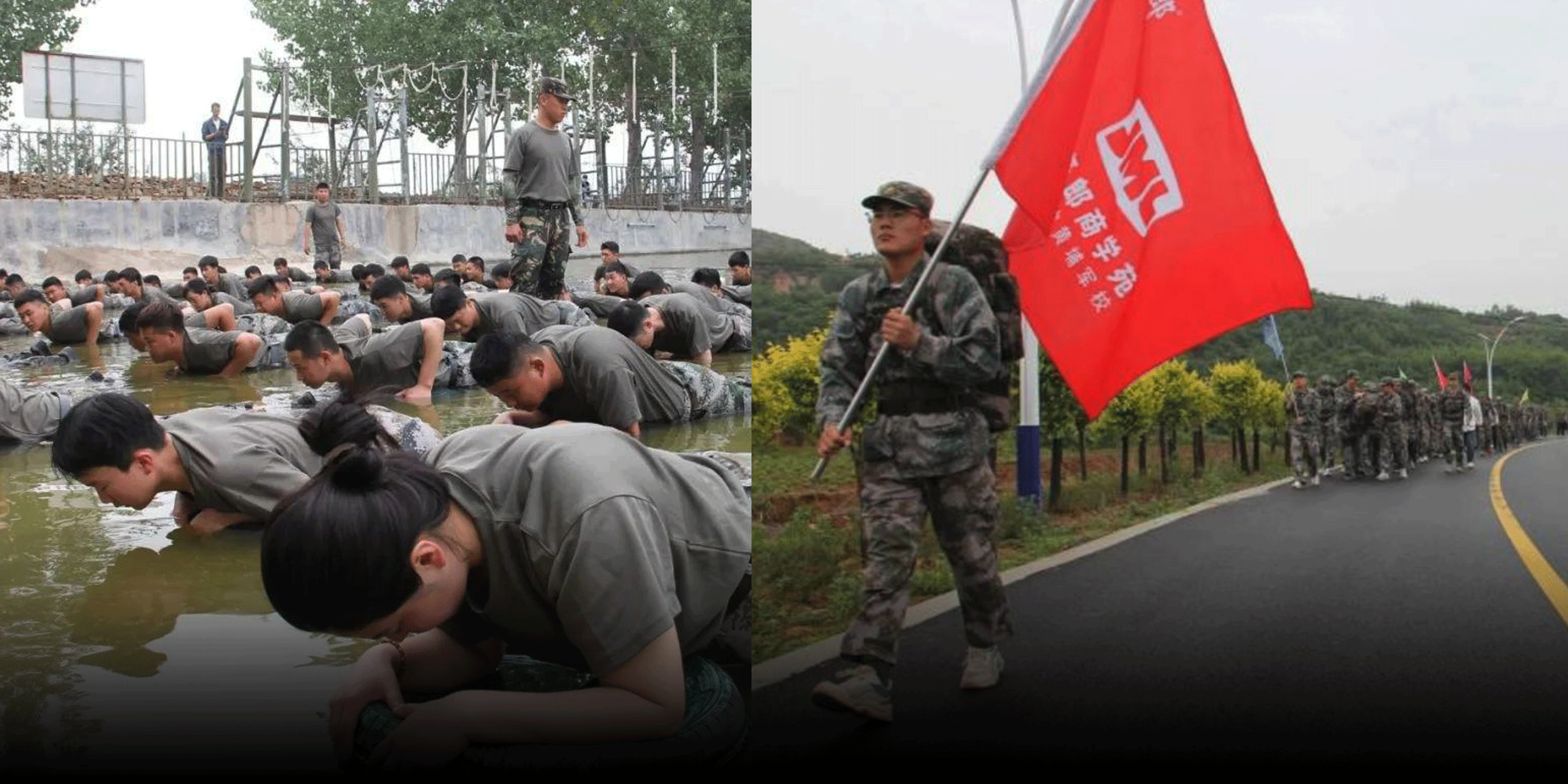
Starting a New Job in China? It Might Involve a 60-Kilometer Hike.
When a group of management trainees showed up for their onboarding at the Chinese instant noodle firm Jinmailang in late April, they were probably expecting to sit through a few ice-breaking sessions and health and safety briefings.
Instead, they say they were subjected to a “week from hell.”
The 76 new hires were whisked off to the countryside in northern China’s Hebei province, where they endured a grueling week of military-style training activities. On the first day, instructors demanded they complete 80 pushups and then stand to attention in the sun for hours. And things only got worse from there.
By the end of the week, the employees had been forced to complete hundreds of squats, trek for 60 kilometers across open countryside carrying heavy packs in temperatures hovering around 30 degrees Celsius, and even beg for food from strangers to “hone their survival skills.”
It’s not the first time Chinese companies have adopted such extreme, military-style induction programs – employers argue that they are an effective way to foster team spirit. But workers are pushing back, arguing the practice is unnecessary — and potentially illegal.
The incident in Hebei has brought the issue back into the spotlight, after a domestic media outlet published a story detailing the workers’ experiences on Tuesday. The piece has since gone viral on the microblogging platform Weibo, sparking a wider debate about the aggressive “wolf culture” promoted by many Chinese employers. The culture is characterized by main qualities such as extreme resilience in face of difficulties, a strong willingness to self-sacrifice, and sharp predator instincts.
Many Weibo users argued that boot camps like the one used by Jinmailang weren’t really intended to promote teamwork but to test whether employees were willing to submit to the companies’ grueling work culture.
“It’s the first stage of teaching workers to work like an ox or horse: either leave or surrender,” read one highly upvoted comment.
Military-style training has become a common part of the onboarding process for companies in Hebei, especially those implementing a “high-intensity, high-standard” management style, according to local media. And the practice also appears to be catching on in other parts of China.
Liang Yi, 24, told Sixth Tone that she had been subjected to a similar boot camp by her first employer, a major privately owned power company based in eastern China’s Jiangxi province.
Days before she was due to start work in 2023, Liang was informed that she would need to complete an onboarding program. She spent 13 days in the countryside running, standing to attention, and completing other physical activities in temperatures up to 38 degrees Celsius.
“I felt deceived,” Liang said. “I don’t think the training was necessary. I found it physically demanding. I lost several kilograms, and we didn’t learn any practical skills required for our work.”
The company hadn’t mentioned this program during the hiring process, Liang said. When she pushed back, the managers insisted the training was necessary for cultivating resilience and team spirit.
“At times, it felt like the company was trying to mentally control us, criticizing our inability to overcome ‘such minor challenges,’ as they called it,” Liang recalled.
Opposition to this kind of mandatory boot camp appears to be growing — and not only among young workers like Liang. In a commentary published Tuesday, Jimu News, the official newspaper of the provincial government of the central Hubei province, said that the rise of compulsory boot camps was a symptom of the problematic “wolf culture” that prevails among many Chinese employers.
“An overemphasis on wildness, greed, and aggression leads to practices that are neither legal nor humane. This will cause intense stress for employees,” the outlet said. “In today’s workplace, wolf culture that demands employees are absolutely obedient and work excessively hard for no extra reward appears quite outdated.”
Jinmailang, the instant noodle company, has faced intense scrutiny this week, with legal experts arguing the firm may have violated Chinese employment law. Chen Yuan, a lawyer at the Shanghai office of Beijing Yingke Law Firm, told local media that military-style training can only be required if it is necessary for a certain position.
If such training is deemed necessary, the company must adhere to local health and safety laws and inform employees about the specific nature of the training program. In this case, Jinmailang may have violated its employees’ rights by failing to clearly inform them about the boot camp, Chen said.
Speaking with domestic media, a representative from the camp that ran the event for Jinmailang said that the induction program was intense but “manageable for adults.” Medical personnel were on standby in case of emergencies, the person added.
The camp has removed a promotional video featuring Jinmailang employees participating in training exercises from its official account on the Chinese social app WeChat.
(Header image: New management trainees hired by the instant noodle company Jinmailang take part in an intense, military-style induction program, in Xingtai, Hebei province, 2024. From @中国慈善家杂志 on Weibo)










